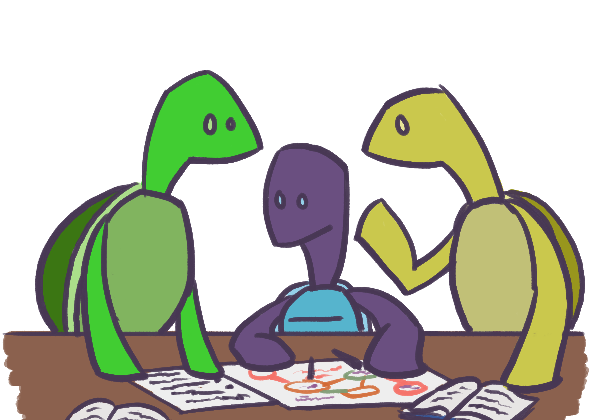Overview
Mission
The lack of calculus courses in U.S. high schools, particularly in lower-resourced regions, represents a significant educational disparity. According to the 2018 National Survey of Science and Mathematics Education, nearly half of high schools in the U.S. don’t offer AP calculus. Calculus is a mandatory course for most university STEM programs across the US, including MIT, and its absence effectively blocks these students’ access to higher education and career opportunities in STEM fields.
MIT4America’s mission is to expand access to calculus education in lower-resourced high schools across the United States by empowering educators and high school learners with scalable, cost-effective support. This will be accomplished by leveraging a combination of the passion and expertise of MIT students and alumni as mentors, MIT’s ability and experience to scale educational innovation, and the future integration of CalcTutor, a 24/7 learning support tool. Our program includes MIT-supported summer kickoff calculus intensives to get students and teachers ready for the year through MIT students on site, combined with academic year tutoring and mentoring from MIT students and alumni with integrated technology support.
Interested in joining our team?
Application for Calculus Tutor – Click here!
Alumni Volunteer with MIT4America Calculus Project – Click here!
Future Vision
Our long term goal is to provide a year-round support system that transforms the teaching of calculus—making it more engaging, effective, and able to attract and retain a wide range of students. After a successful summer pilot in 2025, we will explain our summer offerings to include multiple sites. In partnership with our district and community based partners, we will create a 3-week summer program taught by a local teacher that will provide a headstart for students in the fall.
Join Us
What to Expect from School Year Tutoring Program
We are always looking to support more schools! MIT provides vetted, trained and background-checked online MIT student and alumni mentors The mentors are prepared with example activities, ready to provide homework help, and are trained in college preparation mentoring to support students who wish to pursue a college education. MIT also provides an introductory meeting for teachers and online MIT tutors, regular opportunities to check in with teachers to make sure the tutors are helpful, and ongoing coaching for tutors. This is provided to schools at no cost other than a commitment to working with the tutors.
We invite schools to participate in this transformative program. Together, we can bridge the gap in advanced calculus education and empower students from under-resourced communities to achieve their academic and career goals in STEM fields. In order to participate, schools must have students taking calculus, and be able to provide them with a device with internet access. Again, there is no cost to schools other than working with the program.
For more information or to express interest in participating, please contact: mitforamerica@mit.edu.
